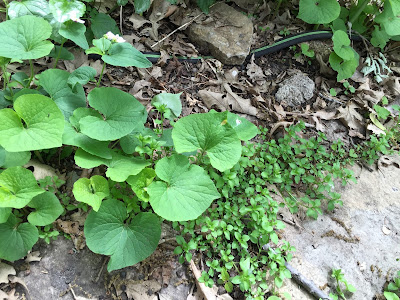Raw Wakame Cucumber
Salad with Pine Nuts
adjustable serving size
2 cups of cucumber,
sliced
1/3-cup wakame flakes,
soaked 5 minutes & sliced
1 Tbsp. of tamari
2 Tbsp. umeboshi vinegar
or lemon juice, adjust amount to your liking
1-cup pine nuts, or use other seeds or nuts, soak overnight
I-2 sprigs of
scallions, diced
Optional: drizzles of toasted sesame oil
Preparation: Combine cucumbers, wakame, seeds and scallions in a mixing bowl. Add
umeboshi vinegar or lemon juice and mix. Let sit and marinate for about 1/2
hour before serving. Drizzle each serving with toasted sesame oil.
For your convenience I added a link to the ingredients I like to use.
Wakame sea vegetables have a special place in my Macrobiotic
kitchen, as it has many important nutrients like, magnesium, iodine, calcium,
iron, vitamins A, C, E, K, D and B2 (riboflavin), and folate and lignans. For
more sea vegetable recipes check out my new book The Macrobiotic Kitchen in Ten Easy Steps.



